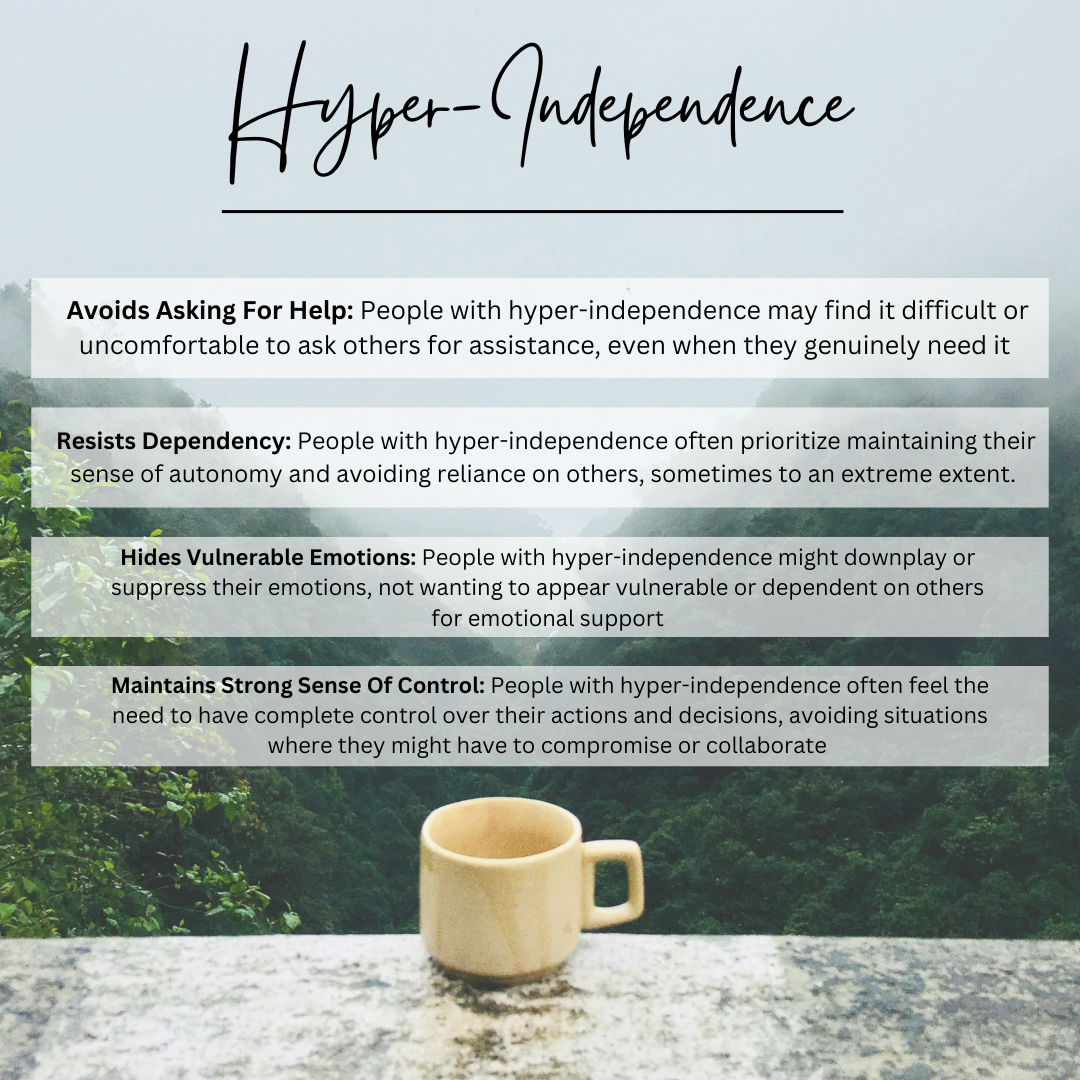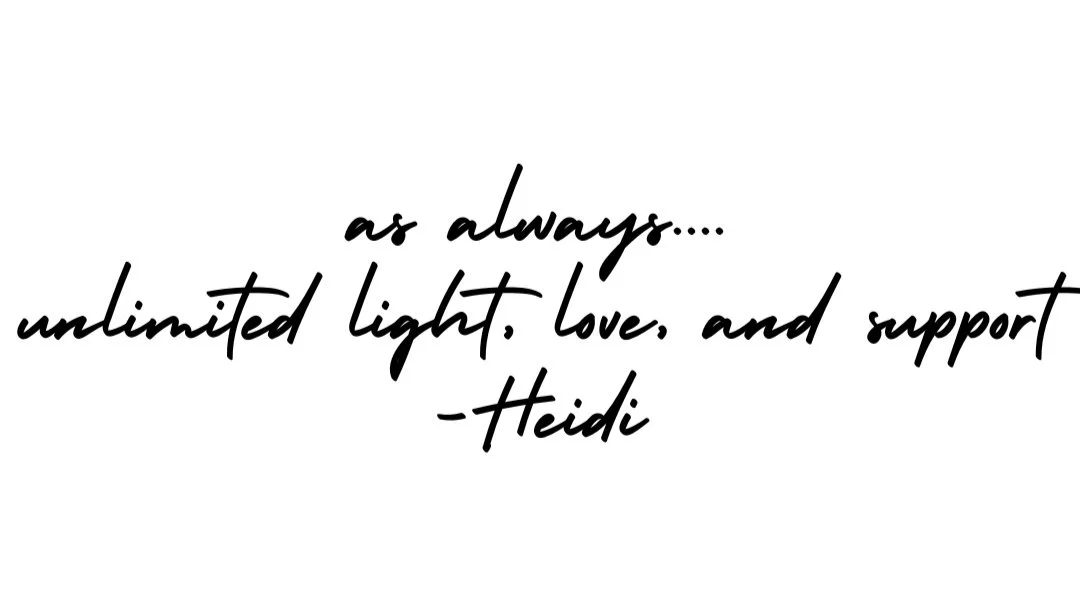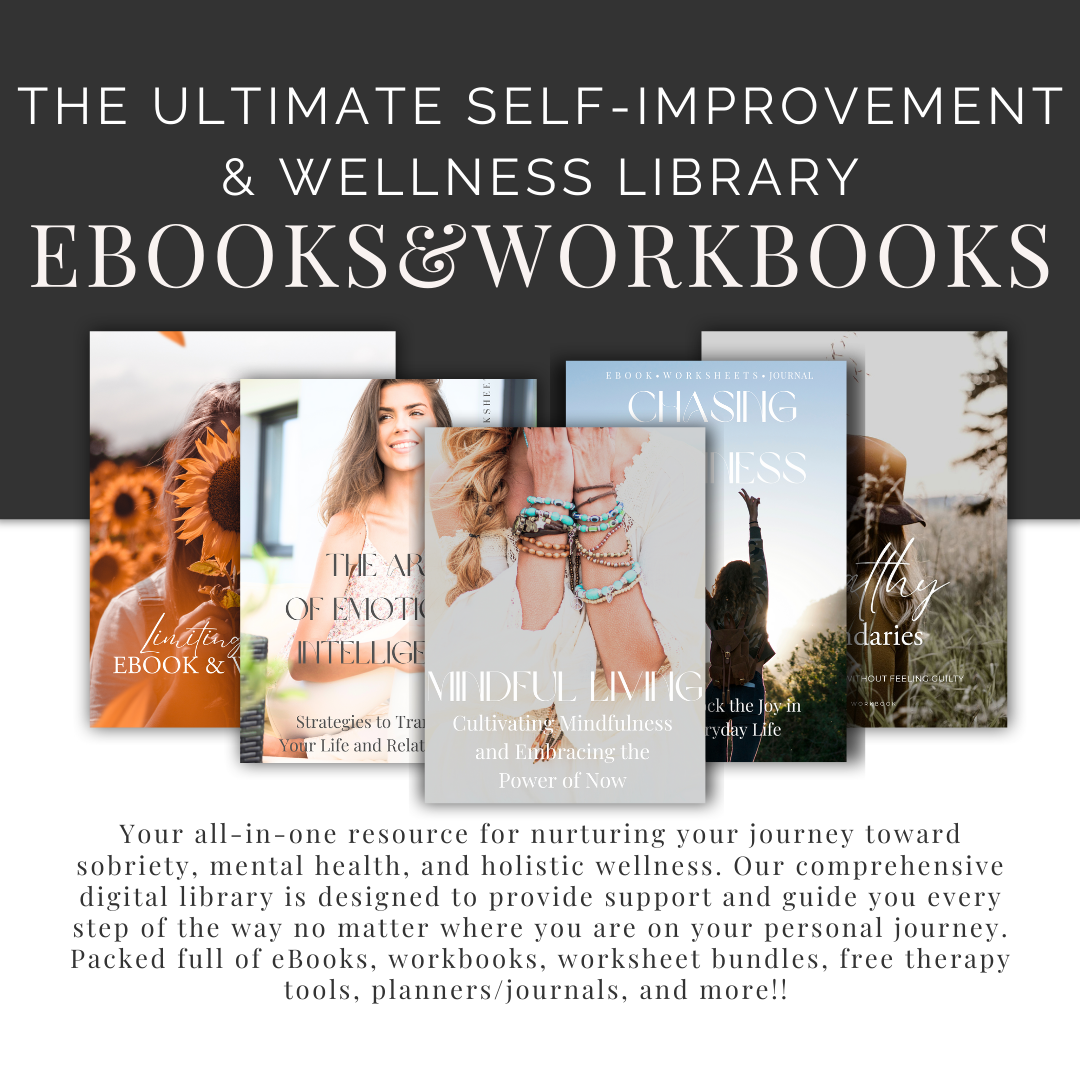Asking For And Accepting Help
Asking For Help? Who The Hell Wants To Do That? Not Me. Thanks.
I always felt like reaching out for help or admitting that I was struggling was a combination of personal defeat, weakness, and going to amount in being more of a pain in the ass than the original problems that I already had.
I didn’t want to face judgment, criticism, or consequences so I did everything in my power to keep my own head above water or not let others know that I was neck deep.
In the long run I had to find out the hard way (per usual) that I was only prolonging certain things and robbing myself of getting better.
Let Me Introduce myself
My name is Heidi. I am a 31 year mother of two, and a recovering addict. I spent more than half of my life fucking shit up. I sent myself on a downhill spiral with meth, heroin, and alcohol, and I have spent the last several years rebuilding my life and setting out to help others who have the desire to do the same.
It has always been EXTREMELY DIFFICULT for me to ask for help.
It’s still a very hard concept that I find myself struggling with. But, it’s necessary for me to humble myself and open up to trusted friends, family, or professionals who could provide the support and guidance I need instead of fighting or avoiding them.
Once I was able to get honest with myself and accept my current state, it made it somewhat easier to open up to others. I learned that the whole world didn’t have it out for me and some people do care.
I found support that offered and provided me with great strength and understanding while battling the things that I have. Seeking and finding the right support makes a world of difference. But, you have to start taking actionable steps to get it.
I want you to know above all else…It’s okay to not be okay. It’s okay to feel the way you’re feeling. It is okay if you’re currently faced with difficulties and admit that it’s a bitch trying to get through them. You don’t have to take on the world by yourself.
Let me hit you with another hard truth right out the gate - Just because you choose to get sober or have found your way to recovery does not mean that you are now invincible. No matter how long I have been in recovery or obstacles I have overcome, I have learned that I will never be in a permeant position of being above having to ask for help.
Just because you have started to rebuild your life does not mean that everything that was in shambles starts to gleam and glow over night.
Achieving a life of sobriety is a significant accomplishment, but it's important to understand that the journey doesn't instantly transform everything for the better.
Each person's path to recovery is unique, with individual setbacks and challenges to overcome. It's crucial to have realistic expectations and avoid the misconception that sobriety alone will solve all of life's problems.
Maintaining a positive mindset and setting achievable goals are essential during this process. While it's natural to hope for a swift and seamless transition, the reality is that progress often comes in small incremental steps.
Setbacks and obstacles are a normal part of the journey, and it's important to be patient and compassionate with yourself.
This approach can help prevent feelings of disappointment or discouragement, which can sometimes arise when expectations are not met. It's important to remember that the journey of sobriety is not about perfection, but about progress.
Pinpointing An Issue
Asking for help in any realm can be something all of us as individual’s may drag our feet with at certain times and under certain circumstances. We again, are all only human. But at the end of the day YOU are most responsible for helping YOU.
If you are unwilling to reach out, accept a helping hand, or open yourself up to the possibility of confiding in someone else no matter who that might be, then you are only willingly giving yourself permission to stay stuck for much longer than necessary.
Sometimes it’s a lot easier said than done. Some might have psychological ties to the inability to ask and receive help.
Being hyper-independent is a personality trait characterized by an intense desire for autonomy, self-reliance, and control over one's life. Individuals who exhibit hyper-independent tendencies often have a deep-seated fear of dependence on others and go to great lengths to avoid perceived vulnerability or the need for support.
This mindset can manifest in both those struggling with substance abuse, as well as those who do not. While self-sufficiency and independence are generally positive qualities, taken to an extreme, hyper-independence can lead to isolation, difficulty forming meaningful connections, and an inability to ask for or accept help - even when it is desperately needed.
Understanding the nuances of hyper-independence and its impacts is an important step in supporting overall wellbeing for a wide range of individuals.
Tips & Tricks To Help
Trauma-focused therapy: Since hyper-independence often stems from past trauma, such as neglect or abuse, trauma-focused therapies like EMDR (eye movement desensitization and reprocessing) can be very helpful in addressing the root causes.
Work on building healthy relationships and trust: Hyper-independent people struggle to open up and rely on others. Therapy can help them learn to form closer, more interdependent relationships and overcome their mistrust of others.
Honor personal limitations: Hyper-independent people need to work on recognizing when they truly need support, and feel comfortable asking for and accepting help from others, rather than trying to do everything themselves.
Manage stress and prevent burnout: Hyper-independent people often take on too much, leading to high stress and burnout. Learning to delegate tasks and set boundaries can be important.
Address perfectionistic tendencies: The need to do everything perfectly on their own can drive hyper-independence. Therapy can help reframe this and become more accepting of imperfections.
Your Star Squad
As I reflect, I've come to deeply appreciate the invaluable role that genuine support has played in my life. My journey has been enriched by the presence of my mom, my stepmom, and my sponsor of over 6 years now. These individuals have each taken on unique and vital roles, and I cannot overstate the significance of having them in my corner.
My mom has been a constant source of emotional nourishment, offering a listening ear, sage advice, and unconditional love. She has been a steadfast pillar, reminding me of my inherent worth and encouraging me to navigate life's challenges with resilience and grace.
My stepmom, on the other hand, has been a guiding light, sharing her wealth of practical wisdom and life experiences. She has helped me navigate complex situations, offering a fresh perspective and practical solutions that have been invaluable.
My sponsor has been an indispensable mentor, walking alongside me on my personal growth journey. She has provided a safe space for me to explore my thoughts and emotions, offering guidance and support without judgment.
All of these wonderful relationships that I have established came from the desire to build them or seek them out.
My drug addiction severed the relationship I had with my mother for a very long time. It took a lot of time, trust, and patience to rebuild that relationship to get where we are today.
I met my sponsor from overcoming the fear and feeling of discomfort and pushing myself to attend NA and AA meetings.
Whether it's a trusted friend, a family member, or a professional mentor, having a support system that you can rely on is essential for personal growth and well-being. These individuals can provide the emotional, practical, and spiritual support that we all need at various stages of our lives.
If you don't already have a strong support system in place, I encourage you to actively seek out individuals who can fill these important roles. It may take time and effort, but they are so important.
Start by reflecting on the areas where you could use the most support, and then take steps to connect with people who can fill those needs. Attend support groups, reach out to trusted friends or family members, or consider working with a therapist or coach.
There’s Nothing Wrong With You
I used to think that by being involved with therapy or going to counseling that meant I had something wrong with me. That I “had problems.” For countless years, the only form of professional help I received was from the programs I was forced into by legal matters or desperation from outside sources other than myself. Counseling and working with any sort of provider was never anything I allowed myself to be fully open to. So, of course nothing worked.
I’m here to reassure you that there is nothing wrong with you. There is nothing wrong with seeking professional help for mental health, substance abuse, trauma, marital struggles, etc. That is what those resources exist for! For individuals to utilize them! So use them!
I genuinely didn’t see any results from working with a mentor or therapist until it was my own decision to seek one out and started routinely attending sessions.
Therapy might not be for everyone. That’s why it’s so important to spend time self-reflecting and being honest with yourself. Some positive transitions might not seem so positive in the beginning, but they are worth it. It is important to push through those fears and uncomfortable feelings standing in your way.
What Can’t Be Undone
It’s crucial to focus on all that is ahead. The sooner you come to terms with your past and the inability we all have to go back and rework things, the easier it becomes to start moving forward.
In some cases, the consequences of self-destruction and poor choices follow us long after we decide to start doing better.
It’s unfortunate, and can be utterly defeating. But just remember - nothing in this life lasts forever. So, whatever obstacles you’re still trying to trudge through, know they are all only passing moments.
Even though I had finally taken the courageous step to get clean and sober, I still had to face the devastating consequences of my past actions.
I had accumulated four drinking and driving charges over the years, which resulted in the permanent revocation of my driving privileges. This was a crushing blow to my sense of independence and self-reliance.
The loss of my driver's license was not just an inconvenience; it was a constant reminder of the poor choices I had made and the damage I had caused. It was defeating to my character, as I had to confront the reality that my addiction had led me down a path of reckless behavior that had serious repercussions. The shame and guilt I felt were overwhelming, and it was a daily struggle to overcome the sense of failure and disappointment in myself.
Despite the challenges, I knew that I had to take control of the situation and do what I could to move forward. Before I had the privilege to start working from home remotely, I had to adjust to my new “normal” walking to and from work every single day, which was just downright grueling and embarrassing.
I was working two jobs. I waitressed and worked full time at an assisted living facility. For two years straight, no matter the weather or time of day, I had to use my own two legs to get there. This was a testament to my determination to take responsibility for my actions and to keep pushing forward.
The difficulties didn't end there. Asking for help to get to appointments and run errands was one of the hardest things I had to do. I have always been fiercely independent, and the idea of relying on others was a blow to my pride.
I realized that I couldn't do it alone. I had to swallow my pride and reach out to my support network for assistance. Whether it was asking a friend for a ride or utilizing public transportation.
I learned that there was no shame in asking for help. In fact, it was a sign of strength and resilience, as I was willing to put my ego aside and do what was necessary to maintain my sobriety and move forward with my life.
The consequences of my drinking and driving charges were a constant reminder of the mistakes I had made, but they also served as a catalyst for personal growth and transformation.
Through this experience, I learned the importance of taking responsibility for my actions, seeking support when needed, and never giving up on the journey to a better life.
respecting boundaries
Maintaining healthy boundaries is crucial when seeking assistance from others. It's important to understand the difference between situations that genuinely require outside help and those that you can navigate on your own.
There are times when seeking external support is necessary and beneficial. This could be when you're facing a challenge that exceeds your current capabilities, or when you're experiencing a significant life event that requires additional resources or expertise. In these cases, reaching out for help can be a wise and responsible decision.
It’s important to recognize that you have the primary responsibility for your own well-being. While it's okay to ask for help when needed, you shouldn't rely on others to solve all your problems or meet all your needs. Maintaining a sense of personal agency and self-reliance is crucial for your long-term growth and development.
Set realistic expectations. Understand that the people you're reaching out to also have their own lives, responsibilities, and limitations. They may not be able to provide the level of support you desire or respond as quickly as you'd like.
Approach the situation with respect, compassion, and understanding, and be willing to adjust your expectations accordingly. Be mindful to implement empathy and understanding, and be willing to compromise or find alternative solutions if necessary.
By maintaining healthy boundaries and recognizing the balance between your own responsibilities and the support you can reasonably expect from others, you can navigate challenging situations more effectively and build stronger, more sustainable relationships.
where and when to start
If you or anyone you know is struggling there are countless resources available to you. If not within your own personal friends and family group, for sure within the community.
I highly recommend looking into local NA, AA, or other support groups. Seek out counseling services or a personal counselor. Seek out a mentor or sponsor.
If you are more comfortable with online services there are plenty available as well!
Contacts -Helplines-Resources
Helplines
National Suicide Prevention Lifeline: 1-800-273-8255
National Domestic Violence Hotline: 1-800-799-7233
Veterans Crisis Line: 1-800-273-8255
SAMHSA National Helpline (for substance abuse): 1-800-662-4357
National Eating Disorders Association Helpline: 1-800-931-2237
Mental Health Resources
National Alliance on Mental Illness (NAMI) - provides support groups, education, and advocacy
American Psychological Association - professional organization with resources and provider directory
American Psychiatric Association - professional organization with resources and provider directory
PsychCentral - extensive directory of mental health resources, blogs, and information
Mental Health America - community-based nonprofit with prevention, early intervention, and recovery services
The Jed Foundation - empowers teens and young adults with mental health skills and support
Bring Change to Mind - YouTube channel to end mental health stigma
Mindful.org - resources on mindfulness and living mindfully
The Mighty - empowers people struggling with health issues and disabilities
Substance Abuse Resources
SAMHSA Treatment Locator - helps find substance abuse treatment facilities
Al-Anon/Alateen - support groups for families and friends of alcoholics
Narcotics Anonymous - peer support for those recovering from drug addiction
Smartrecovery.org - offers 24hr chat and support line. Online daily scheduled NA and AA Meetings
Alcoholic Anonymous - peer support for those recovering from alcohol abuse
Eating Disorder Resources
National Eating Disorders Association - helpline, treatment options, and support
ANAD - nonprofit providing support groups and resources for eating disorders
Other Resources
988 Suicide & Crisis Lifeline - 24/7 crisis support
Crisis Text Line - text HOME to 741741 for 24/7 crisis support
211 - connects people to local health and human services resources
Remember, if you or someone you know is in immediate crisis, call 988 or 911 right away.
time to shine
Life's path is not always smooth, but it is in the face of adversity that we find our true strength. When the road ahead seems daunting, do not be afraid to ask for help. Reach out to your support network, utilize the resources available to you, and know that you have the power to overcome any obstacle that stands in your way.
Be gentle with yourself, celebrate your successes, and learn from your setbacks. And as you navigate your journey, extend that same compassion to those around you. We all have our own battles to fight, and by supporting one another, we can create a world that is kinder, more empathetic, and more connected.
You are capable of extraordinary things.
If at any point you find yourself struggling, please do not hesitate to reach out. I am here, just a button click away, ready to offer support, guidance, and a listening ear. Together, we can navigate the challenges and celebrate the triumphs of your amazing journey.
Wishing you all the best as you continue on your path. May your steps be guided by courage, your heart be filled with compassion, and your spirit soar with the knowledge that you have the power to create the life you truly desire.
Additional Self-Help Tools:
Are you ready to take your personal growth to the next level? Our carefully curated collection of self-improvement and wellness eBooks and workbooks are designed to help you cultivate the mindset, habits, and skills you need to thrive. Whether you're seeking to boost your productivity, improve your mental health, or simply live a more fulfilling life, you'll find a wealth of practical, science-backed strategies within our digital library. Dive into insightful reads that will challenge your perspectives, complete interactive exercises to cement new behaviors, and track your progress along the way. Investing in your well-being has never been easier or more accessible.












